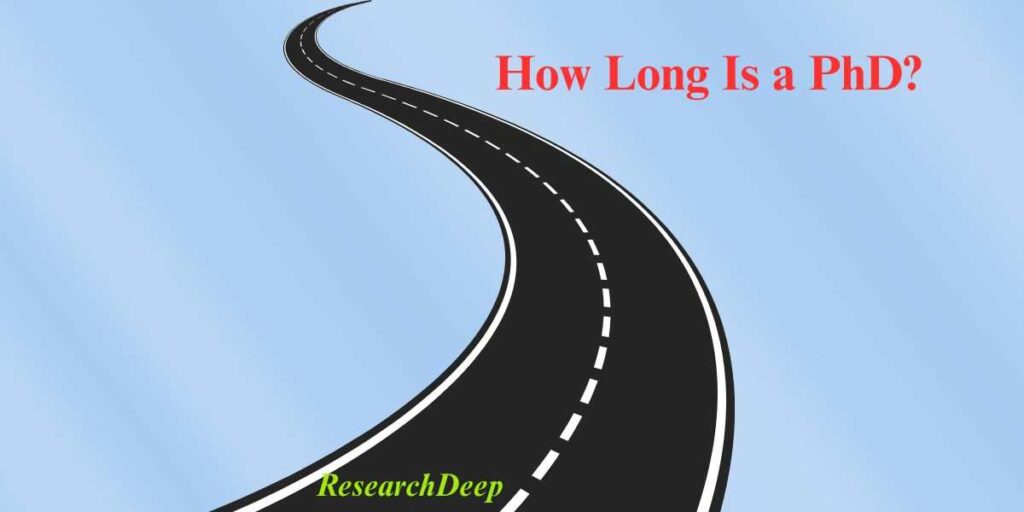Last updated on September 13th, 2025 at 05:21 am
Choosing a PhD is a significant life decision, and with the cost, time, and effort involved, it’s essential to select one that offers a long-term payoff.
Whether you’re targeting academic excellence, financial return, or industry demand, certain PhDs stand out as especially worthwhile.
This article explores the best PhDs to pursue, based on factors such as Salary, job market growth, global demand, and career flexibility.
Table of Contents
Quick Overview
ResearchDeep
Top 5 Best PhDs to Get
- 1. Computer Science – AI, Cybersecurity
- 2. Engineering – Electrical, Biomedical
- 3. Finance & Economics – Quant Roles
- 4. Physics – Quantum Tech, Data Science
- 5. Health Sciences – Public Health, Biostatistics
Why These Rank High:
- ✓ High Industry Demand
- ✓ Strong Earning Potential ($100K+)
- ✓ Global Job Mobility
- ✓ Academia + Industry Options
Note: Rankings based on job growth, ROI, and global applicability (2024–2025).
5 Top Phds To Get
🧪 1. Computer Science PhD
- Focus Areas: Artificial Intelligence, Machine Learning, Cybersecurity, Quantum Computing
- Why It’s Valuable: Explosive job growth in AI, deep tech, and data science across all industries.
- Average Salary: $120,000 – $170,000
- Top Recruiters: Google DeepMind, OpenAI, Meta, IBM, Microsoft Research
🏗️ 2. Engineering PhD
- Top Fields: Electrical, Mechanical, Biomedical, Aerospace
- Applications: Robotics, MedTech, IoT, Space Exploration
- Global Outlook: Strong demand in the U.S., Germany, Japan, and South Korea
- Average Salary: $110,000 – $160,000 in industry roles
💰 3. Finance or Economics PhD
- Specializations: Quantitative Finance, Econometrics, Risk Modeling
- Why It Ranks High: Used in hedge funds, fintech, and central banking
- Average Salary: $125,000 – $180,000 (especially in quant and fintech roles)
- Top Employers: Goldman Sachs, JPMorgan, IMF, World Bank
⚛️ 4. Physics PhD
- Research Areas: Quantum Computing, Space Science, Materials Science
- Career Routes: Academia, Big Tech, National Labs
- Why It’s Great: Trains top-tier problem solvers sought by industries
- Salary Range: $90,000 – $150,000, depending on specialization
🏥 5. Public Health / Biostatistics PhD
- Why It Matters: Pandemic-driven demand; roles in global health, data analytics, and epidemiology
- Top Fields: Health Economics, Bioinformatics, Policy Analytics
- Growth Sectors: WHO, CDC, Gates Foundation, global NGOs
- Salary Range: $85,000 – $140,000
Recommended Reads
What Is The Highest PhD Degree Salary?
Average Salary With PhD: Global Snapshot
7 Most Lucrative PhDs: With Best Growth Outlook
Doctorate vs PhD Salary: What’s the Difference?
📊 Comparative Table: Best PhDs by ROI
| PhD Field | Avg. Salary (USD) | Career Scope | Academia vs Industry |
|---|---|---|---|
| Computer Science | $140,000 | High | 20% academia / 80% tech |
| Engineering | $130,000 | High | 30% academia / 70% R&D |
| Finance & Economics | $145,000 | Very High | 15% academia / 85% banks |
| Physics | $125,000 | Medium-High | 60% academia / 40% tech |
| Public Health | $110,000 | Very High (NGOs, gov’t) | 40% academia / 60% policy |
Disclaimer: These figures are based on industry and academic surveys from OECD, PayScale, BLS, and Nature Careers. For the most recent updates, check official sources such as the BLS, PayScale, and Nature Jobs.
🧠 FAQ: People Also Ask
Which PhD has the highest Salary?
PhDs in Finance, Computer Science, and Engineering top the salary charts, especially in the U.S. and Europe.
What PhDs are most in demand?
STEM-related PhDs are the most sought-after, particularly in fields such as data science, AI, healthcare, and clean energy.
Are PhDs better than professional doctorates?
It depends. PhDs are best suited for research, while professional doctorates (such as MD, JD, and DBA) are more suitable for practice-oriented careers.
🧾 Conclusion
The best PhDs to get are those that combine intellectual fulfillment with tangible career benefits. Degrees in Computer Science, Engineering, Economics, Physics, and Public Health rank at the top due to their strong market demand, interdisciplinary applications, and earning potential.
While personal passion is key, aligning it with career viability ensures that your PhD is a valuable asset, not just a credential.




